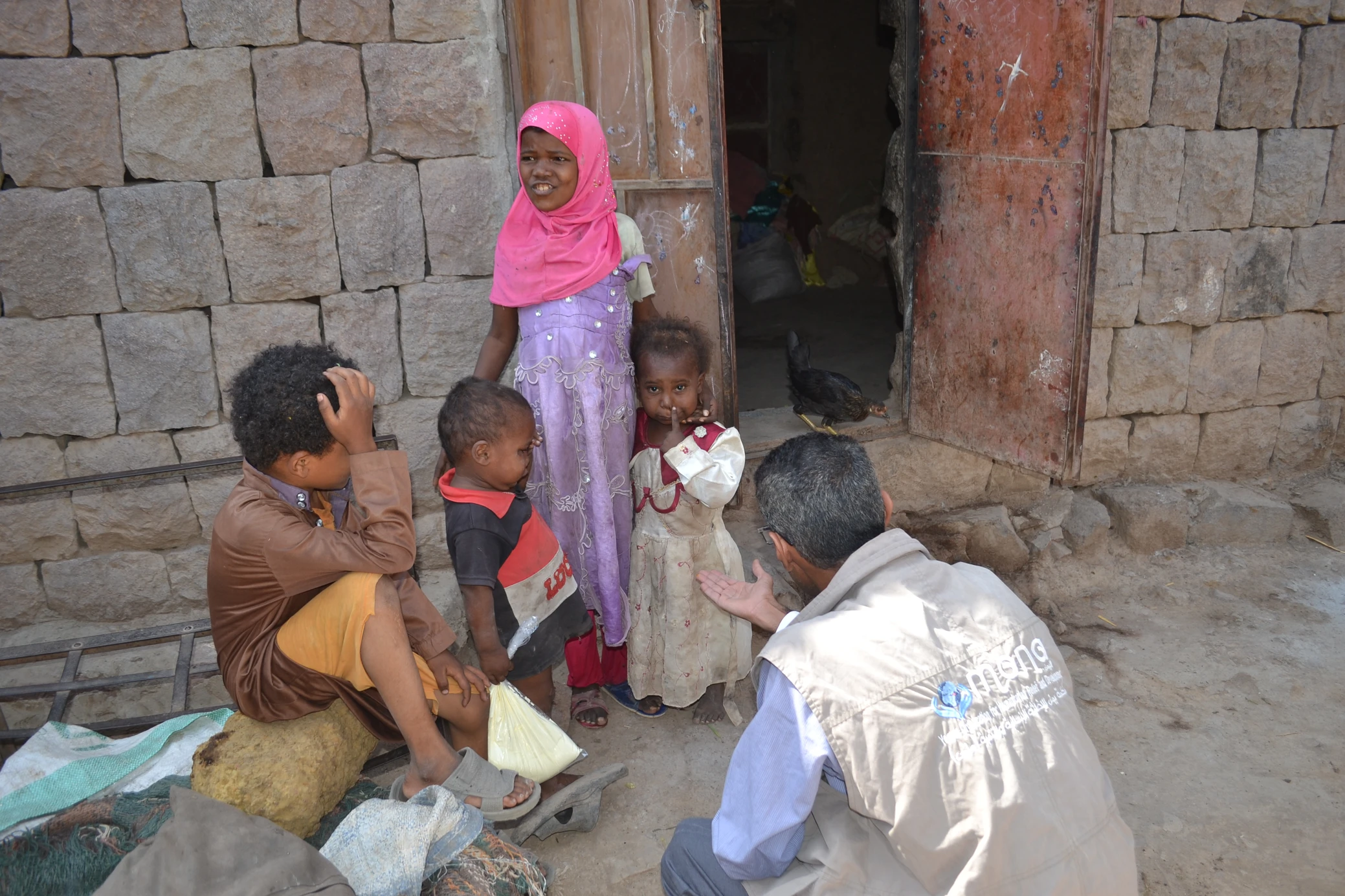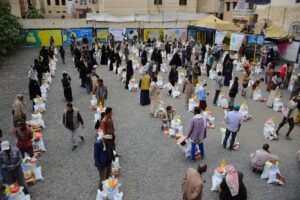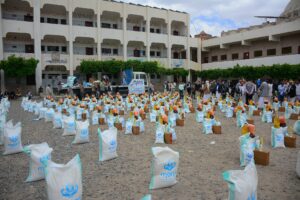March 6, 2019
Mona Relief -Exclusive
By Ali al-Tawhami
Sleeping deep, the twins, Rafa and Rahef (9 months), who suffered from severe acute malnutrition, slept in a bedside in the Bani Saad hospital of Mahwit province ‘ North West of Yemen’, trying to regain strength after losing half their weight.
Hardly breathing, the very thin twins in addition to suffering from acute malnutrition contracted cholera a week following they were treated from malnutrition a matter that worsened their suffering.
The twins mother told the media center of Yemen for Humanitarian Relief and Development Organization (MONA) during a tour to Khamis Bani Saa’d clinic center that the twins abstained suckling and commenced vomiting any liquid they drink side by sde with severe diarrhea a week following they were treated from malnutrition.
“Their health condition was worsening a day after a day and I failed to know the cause so I decided to rush them to a clinic for treatment,” said the twins mother.
” We did not have enough money to transport them to a clinic or even to purchase medicine to reduce their temperature, fortunately a local person donated to rush them to a clinic,” she said.
According to the United Nations Children’s Fund (UNICEF), the number of children suffering from acute malnutrition in Yemen in 2018 is estimated at 1.8 million children, including about 400,000 children suffering from acute malnutrition, which threatens their lives.
In a statement published on its website last month, UNICEF provided therapeutic care to more than 244,000 children in Yemen under the age of five, most of whom suffer from acute malnutrition starting from 2018, as well as a providing health care to 317,000 children under 5 years old, suffering from shortage of specific food items.
For his part Fuad al-Hasani, manager of Bani Saad hospital said that the malnutrition department has admitted over 34 malnutrition cases since its establishment in June 2018, seven cases of them in last October.
Al-Hassani confirmed that the hospital is receiving other conditions such as malaria, typhoid, Gardemia and dengue fever. “Four cases of dengue fever died last week,” he said.
Last October, UN humanitarian coordinator Mark Lokoc warned of the risk of an imminent famine in Yemen, which has never been seen before by any humanitarian professional.
Famine is usually announced somewhere when certain degrees of food insecurity, malnutrition and mortality are reached. The three criteria for famine are that at least one in five households face severe food shortages; more than 30% of children under the age of five suffer from acute malnutrition; at least two out of ten thousand people die every day.
Yemen has been ravaged by civil war since 2015, which has claimed the lives of 10,000 civilians, displaced some 3 million people and caused the world’s worst humanitarian crisis according to the UN classifications. The United Nations Children’s Fund (UNICEF) recently announced that access to drinking water in Yemen is very costly for the war, especially for the most vulnerable people, where there are currently 16 million people, including 8.6 million children are denied access to water, sanitation and hygiene services










